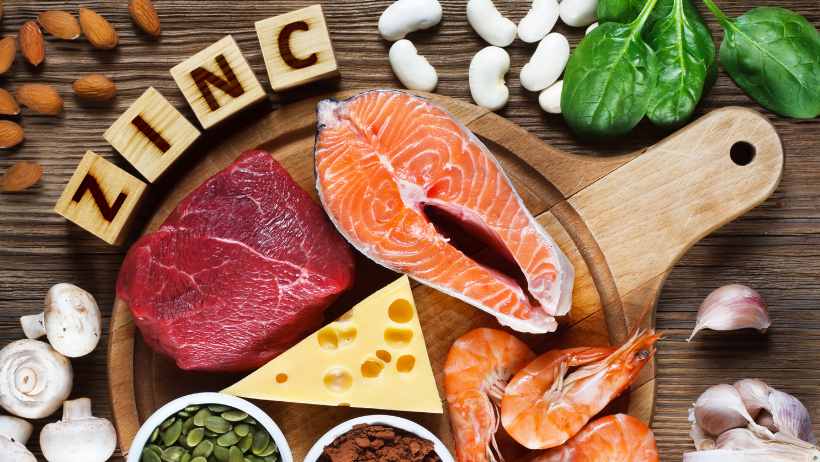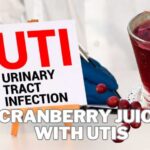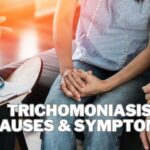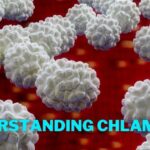
The ongoing discourse in the field of nutrition pertains to the superiority of consuming essential nutrients from food as opposed to supplements.
Zinc, an essential mineral that functions pivotally in numerous physiological processes, is not exempt from this discourse. As one delves into the complex web of knowledge pertaining to zinc supplementation, it becomes evident that the most optimal method of obtaining this vital mineral is from natural dietary sources.
Zinc aides in digestion, promotes nerve function, facilitates metabolism, and provides immune system support; it also contributes to mental health. The purpose of this article is to examine the significance of acquiring zinc from food, catalog a range of food sources that are abundant in zinc, tackle the recommended daily values for zinc, analyze risk factors associated with zinc deficiency, and underscore the possible negative consequences of excessive zinc consumption.
Furthermore, the article will address the inconclusive results concerning the efficacy of zinc supplements in the treatment of the common cold, underscoring the criticality of consulting healthcare experts for advice.
Functions and Importance of Zinc
Zinc is an indispensable mineral that performs a multitude of vital physiological processes. It is regarded as one of the most vital nutrients that the human body requires. Brain health, digestion, nerve function, and metabolism are all improved by zinc. It processes a multitude of enzymatic reactions and is indispensable for the optimal operation of more than 300 enzymes within the organism.
Assistance to the immune system
It is common knowledge that zinc has immune-boosting properties. It is essential for the proper functioning and development of immune cells, including T lymphocytes, natural killer cells, and neutrophils. These immune cells contribute to the body’s defense against pathogens and infection. Additionally, zinc promotes the synthesis of antibodies, which are critical for the eradication and detection of pathogens and pathogens.
Function in metabolism
An additional crucial role that zinc plays is in the process of digestion. It is a prerequisite for the synthesis of numerous enzymes that participate in the enzymatic degradation of carbohydrates, proteins, and lipids. Enzymes that facilitate the absorption and digestion of nutrients from food. Insufficient zinc intake may result in compromised digestion, which may subsequently give rise to nutrient deficiencies and digestive complications.
Nervous system operation
Zinc is essential for neurotransmitter activity and appropriate nerve function. It facilitates the transmission of signals throughout the body by playing a crucial role in intercellular communication. Zinc participates in the regulation of neurotransmitters such as serotonin and dopamine, which are critical for cognition, mood regulation, and mental health as a whole.
The process of metabolism
The metabolism of carbohydrates, lipids, and proteins all requires zinc. It functions as a co-factor for a multitude of enzymes that are accountable for the metabolic process of these macronutrients. Zinc facilitates the transformation of food into energy and is essential for maintaining a healthy metabolic rate. A zinc deficiency may result in a lethargic metabolic rate, diminished energy levels, and compromised utilization of nutrients.
Mental health
Zinc is essential for cognitive function and optimal brain health. It is essential for learning and memory and is involved in neurogenesis, the process of producing new brain cells, and synaptic plasticity. In addition to its antioxidant properties, zinc prevents oxidative stress and damage to brain cells. Sufficient zinc levels are imperative for the preservation of optimal brain health and the prevention of cognitive deterioration.
Sources of Zinc in Food
To ensure a sufficient consumption of zinc, it is critical to include foods that are abundant in zinc in one’s dietary regimen. Zinc is accessible through plant and animal sources, thereby offering a diverse array of alternatives to fulfill one’s nutritional requirements.
Animal products
It is well-established that zinc derived from animals is exceptionally bioavailable, or readily ingested and utilized by the body. These sources consist of:
Oysters are regarded as an excellent source of zinc due to the high concentration of this mineral per serving.
Lean cuts of beef in particular are an excellent source of zinc. By incorporating cattle into your diet, you can increase your zinc consumption.
Pork: Pork, particularly lean cuts such as tenderloin, is an excellent source of zinc.
Turkey breast is an excellent source of zinc in addition to being an excellent source of lean protein.
Fish: Specific species of fish, including sardines and salmon, are rich in advantageous omega-3 fatty acids and contain moderate levels of zinc.
Plant origins
Additionally, vegetarians and vegans have access to an abundance of plant-based zinc sources. Examples of such vegetation sources are:
In addition to being an excellent source of fiber and protein, lentils are also an abundant source of zinc. They are simple to integrate into stews, salads, and soups.
Pumpkin seeds serve as a highly beneficial plant-derived source of zinc. They are suitable for snacking, incorporating into salads, and cookery.
In addition to being an excellent source of protein and healthful fats, peanuts also contain a respectable level of zinc.
Broccoli is an exceptionally rich in nutrients, including a trace quantity of zinc. By incorporating broccoli into your meals, you can increase your zinc consumption.
Blueberries: In addition to their antioxidant properties, blueberries also comprise a trace quantity of zinc. By including blueberries in one’s dietary regimen, one can acquire this vital mineral.
It is imperative to acknowledge that the level of zinc bioavailability may be comparatively reduced in plants as opposed to animals. A balanced and varied diet, consisting of a combination of plant and animal sources, can assist in guaranteeing sufficient zinc consumption.
Daily Recommended Values for Zinc
The recommended daily zinc intake differs based on age and life stage. The following constitutes the Recommended Daily Allowance (RDA) for zinc:
Infants aged 7 to 12 months: 3 milligrams
3 mg for children aged 1 to 3 years
5 mg for children aged 4 to 8 years
8 mg for children aged 9 to 13 years
Male adolescents aged 14 to 18 years: 11 milligrams; female adolescents: 9 mg.
Over the age of adulthood: 11 mg for males and 8 mg for females
Breastfeeding and pregnant women: 11 mg
Adherence to these prescribed values is critical for the promotion of optimal health and the prevention of zinc deficiency. However, specific health conditions, intensity of physical activity, and overall health may influence individual requirements.
Factors Contributing to Zinc Deficiency
While zinc deficiency is uncommon in developed nations, there are a number of risk factors that can heighten the likelihood. These consist of:
Specific medical ailments
Certain medical conditions can increase the risk of zinc deficiency by impeding zinc absorption. Zinc absorption can be compromised by gastrointestinal disorders such as Crohn’s disease, ulcerative colitis, and celiac disease. Sickle cell anemia, chronic liver or kidney disease, and diabetes can also have an impact on zinc metabolism.
A vegan diet rich in whole cereals and legumes
Vegans whose primary sources of protein are legumes and whole grains may be more susceptible to developing zinc deficiency. Phytates, which are naturally present in these plant-based foods, are compounds that impede zinc assimilation by binding to it. Soaking, germinating, or sprouting cereals and legumes can aid in the absorption of zinc by improving phytate content.
A balanced diet consisting of an assortment of food sources can aid in reducing the likelihood of developing zinc deficiency.
Supplementation and Testing for Zinc Deficiency
For an accurate diagnosis and treatment, it is critical to seek medical advice and undergo testing if a zinc deficiency is suspected. Frequently, zinc deficiency is diagnosed through a blood test that measures zinc concentrations in the blood. This can assist in ascertaining whether supplementation is required.
The value of medical oversight
It is imperative to seek the advice of a healthcare professional prior to commencing any zinc supplementation regimen. Individual requirements can be evaluated in order to ascertain the most suitable dosage. Without medical supervision, excessive or prolonged zinc supplementation may result in adverse effects.
When supplementation might be required
Zinc supplementation may be required when zinc absorption and metabolism are impaired due to specific medical conditions or inadequate dietary intake. Supplementation should only be considered after consultation with a medical professional.
Zinc excess and its detrimental consequences
Although zinc is an essential nutrient, excessive consumption may result in detrimental health consequences. Exceeding the Upper Intake Level (UL), which is considered tolerable, may result in the manifestation of symptoms including nausea, vomiting, abdominal discomfort, and cephalalgia. An extended period of excessive zinc consumption may impede the assimilation of copper, ultimately resulting in copper deficiency. It is vital to adhere to the dosage recommendations and not surpass the upper limit.
Upper Tolerable Intake Level
A predetermined Upper Intake Level (UL) has been established for zinc in order to mitigate the potential for negative consequences. The zinc UL is defined as follows:
For infants aged 7 to 12 months, 4 milligrams
7 mg for children aged 1 to 3 years
12 mg for children aged 4 to 8 years
23 mg for children aged 9 to 13 years
34 mg for adolescents aged 14 to 18 years
Forty mg for adults (19 years and older)
It is critical not to surpass these upper limits unless guided by a physician.
Supplemental Zinc versus Food Sources
While zinc supplements may serve as a viable alternative for fulfilling zinc requirements, it is generally advised to derive nutrients from dietary sources whenever feasible. Food sources contain zinc, among other nutrients, in a combination that is frequently more efficiently assimilated and utilized by the body.
Zinc is optimally obtained from dietary sources.
When ingested, zinc is frequently supplemented with other vital nutrients that can improve its assimilation and application within the organism. It is well-established that animal sources possess a greater degree of bioavailability than dietary supplements. A varied diet consisting of foods abundant in zinc can guarantee optimal nutrition.
When supplementation may be advised
Zinc supplementation may be advised in specific circumstances, such as when dietary intake fails to meet the recommended values or when particular medical conditions hinder zinc absorption. Nevertheless, it is imperative to consult with a healthcare professional in order to ascertain the proper dosage and duration of supplementation.
The Efficacy of Zinc Supplements in Treating the Common Cold
Supplemental zinc has become increasingly recognized as a possible remedy for the common cold. Nonetheless, there is a lack of consensus regarding the efficacy of zinc supplements in the treatment of the common cold.
Zinc supplements taken within twenty-four hours of the onset of cold symptoms may help reduce the duration and severity of symptoms, according to some studies; however, other research has failed to identify any significant benefits. Zinc supplement efficacy in treating the common cold may differ depending on dosage, formulation, and supplementation timing, among other variables.
It is imperative to seek guidance from a healthcare professional prior to initiating zinc supplementation for any health condition, including the common cold. They have the ability to offer tailored recommendations in accordance with your particular requirements and health conditions.
Zinc is, in summary, an indispensable mineral that serves a critical purpose in numerous physiological processes—including brain health, digestion, nerve function, and metabolism. Although it can be derived from plant and animal sources, animal sources are regarded as the most bioavailable.
It is imperative to adhere to the recommended daily values of zinc in order to preserve optimal health. However, specific dietary patterns and medical conditions that are at risk can heighten the likelihood of experiencing zinc deficiency. Under medical supervision, zinc deficiency testing and supplementation should be performed, as excessive ingestion may result in adverse effects.
Although zinc supplements may be advised in specific circumstances, it is generally more advantageous to obtain zinc from dietary sources. In conclusion, the efficacy of zinc supplements in the treatment of the common cold remains uncertain; therefore, it is advisable to seek guidance from a healthcare professional.










